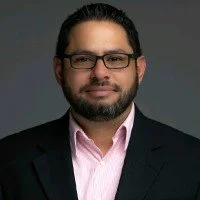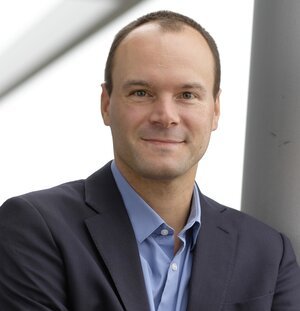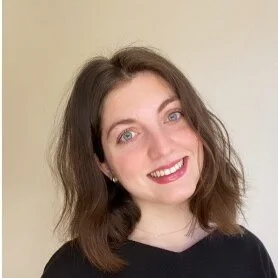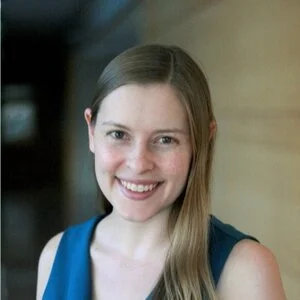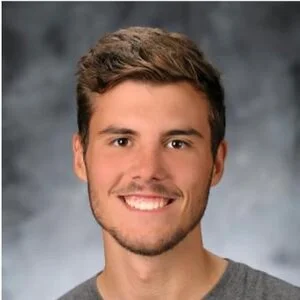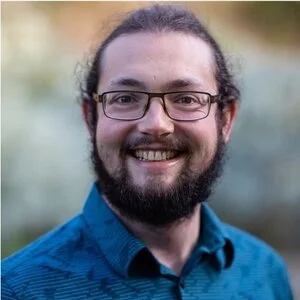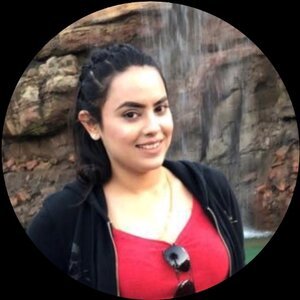2021 Keynote Speakers
URSA Lecture
Heavily influencing the emblems and symbols of the University of California system, the bear also has been chosen to represent the iconic nature of our conference and our opening keynote address. The invitation for this talk is decided upon by graduate student and post-doc attendees to honor and hear from someone who they consider to be one of the most influential members of our field. It is the opening keynote address for the University of California Chemical Symposium and addresses the career and work of the speaker and serves to address the state of chemical sciences as a field.
Emily Pentzer is an Associate Professor in the Department of Chemistry and the Department of Materials Science at Texas A&M University. Her current research is focused on synthesizing new materials and assemblies to understand structure-property-application relationships. Her many accomplishments include receiving the NSF-CAREER award in 2016, the PMSE Young Investigator Award in 2017, and the CWRU Faculty Divesity Excellence Award in 2019. She is also currently an Associate Editor for the RSC Polymer Chemistry journal and serves as Alternate Councilor for the Polymer Division of the American Chemical Society.
LUX Lecture
The motto of the University of California system is “Let there be light”; this call to action serves as the origin of the name of our closing keynote address. This lecturer must be nominated by multiple former attendees in recognition of their roles as a researcher, a mentor, and an inspiration to strive ever further. This lecture addresses the career and work of the speaker as well as should serve as an inspiration to return to our universities and continue our noble pursuits.
David studied chemistry and biology at Union College under the guidance of Joanne Kehlbeck, and received his Ph.D. in chemistry from Stanford University working in the lab of Justin Du Bois. After his graduate work, he completed postdoctoral training in neuroscience at the Stanley Center for Psychiatric Research at the Broad Institute of MIT and Harvard.
David joined the faculty at UC Davis in 2015, where he established a research program at the interface of chemistry and neuroscience. His lab studies a class of compounds called psychoplastogens, or small molecules capable of promoting neural plasticity. Such compounds have enormous potential for treating a wide variety of neuropsychiatric diseases including depression, anxiety disorders, and addiction. The Olson lab uses a combination of synthetic chemistry, molecular neurobiology, and behavioral neuropharmacology to 1) understand the fundamental mechanisms underlying the effects of psychoplastogens on the nervous system, and 2) develop next generation neurotherapeutics.
Diversity in STEM Panelists
Prof.Marie Heffern
University of California, Davis
Marie Heffern was physically born in Quezon City, Philippines and grew up in Hawaii, California, and Nevada. Scientifically speaking, she was born in Inorganic Chemistry and has spent some time abroad in Chemical, Cancer, Neuro-, and Nutritional Biology. She earned her bachelor’s degree at the University of Southern California where she was a Women in Science and Engineering research fellow, designing synthetic routes for perovskite nanocrystals under the guidance of Prof. Richard Brutchey. Marie earned her Ph.D. at Northwestern University, working with Prof. Thomas J. Meade as a NSF Graduate Research Program Fellow to investigate metal complexes as inhibitors of proteins involved in disease progression
Following her graduate studies, Marie trained with Professor Christopher Chang at the University of California, Berkeley as a University of California President’s Postdoctoral Fellow, researching in vivo imaging probes for redox-active metals. She began her independent career in the Department of Chemistry at UC Davis in July 2017, where her team investigates the role and influence of metals within the endocrine system and the extracellular environment. Her group is particularly interested in the role of extracellular metals in nutritional health and obesity-related disorders.
Marie is an advocate of learning and taking risks both inside and outside the research arena. She is passionate about promoting strategies of DEI in STEM, particularly with respect to improving support and mentoring systems to improve overall retention and advancement of underrepresented groups in STEM at the graduate level and beyond. Her ongoing interests outside the lab include improvisational cooking, rock climbing, riding her motorcycle through beautiful Northern California, sporadic running, and a new obsession with gardening.
Prof. Galia DEbelouchina
University of California, San Diego
Galia grew up in a small town in the mountains of southwestern Bulgaria. From an early age, she fell in love with hiking and exploring the natural world. While in high school, she won a scholarship to attend the Red Cross United World College in Flekke, Norway, where she had the opportunity to study with students from eighty different countries. Moving to Norway, she continued her hiking adventures and worked closely with the Norwegian Red Cross to develop programs and activities for refugee youth centers.
Continuing her journey west, she attended Colby College in Waterville, ME as a Davis UWC scholar. While she initially considered a degree in economics, she had to take a science class to fulfill her college requirements and thus fell in love with chemistry. Eventually she obtained a B.A. in Chemistry and Mathematics, and spent summers doing research on sea anemones and guest-host interactions. Her next adventures took her to MIT where she obtained a Ph.D. in Physical Chemistry, and then Princeton University where she did postdoctoral research in chemical biology and chromatin regulation.
In 2017, Galia moved to San Diego and started her position as an Assistant Professor at the Department of Chemistry and Biochemistry at UCSD. Her lab develops methodologies for structural biology in cells and studies proteins involved in gene regulation and neurodegenerative disease. In her spare time, Galia enjoys exploring the mountains of Southern California and practicing yoga.
Dr. Carlos Toro
Senior managing Editor for ACS publications
Dr. Carlos Toro earned his Bachelor’s degree in Chemistry from La Universidad del Zulia, Maracaibo, Venezuela, where he started his professional career as a computational chemist. In 2010, Carlos obtained his Ph.D. in Chemistry from the University of Central Florida, where he used multi-photon absorption spectroscopy to study the nonlinear optical properties of chiral molecules.
Afterwards, he held a position as the Ellen D. Williams Distinguished Postdoctoral Fellow in the Department of Chemistry and Biochemistry at the University of Maryland, where his research focused on the study of high resolution transient infrared absorption spectroscopy of molecular super rotors. In Spring 2014, Carlos joined the ACS Publications Division and is now Senior Managing Editor, overseeing nine journal titles with responsibility over their strategic development and management.
In his free time, Carlos enjoys cooking and grilling although he spends most of his time out of the office involved in fun activities with his three kids and wife. More recently, thanks to the pandemic, he started to develop an interest for fishing.
Prof. Carolyn Bertozzi
Stanford University
Carolyn Bertozzi is the Baker Family Director of Stanford ChEM-H and the Anne T. and Robert M. Bass Professor of Humanities and Sciences in the Department of Chemistry at Stanford University. She is also an Investigator of the Howard Hughes Medical Institute. Her research focuses on profiling changes in cell surface glycosylation associated with cancer, inflammation and infection, and exploiting this information for development of diagnostic and therapeutic approaches, most recently in the area of immuno-oncology.
Prof. Bertozzi is an elected member of the National Academy of Medicine, the National Academy of Sciences, and the American Academy of Arts and Sciences. She also has been awarded the Lemelson-MIT Prize, a MacArthur Foundation Fellowship, the Chemistry for the Future Solvay Prize, among many others.
Science to Policy Workshop
Morgan Dundon
Content Creation chair, UCR center for Science to Policy
Morgan Dundon is a graduate student researcher and National Science Foundation Graduate Research Fellow at the University of California, Riverside (UCR), pursuing a PhD in Materials Science and Engineering. She holds a BS in Forensic Chemistry and Chemistry from Towson University. Morgan is the Chair of Content Creation for the UCR Center for Science to Policy’s student-led cabinet.
This workshop will discuss the role of science in public policy, resources on searching for legislation, and the avenues that scientists can use to communicate with legislators. It will also cover differences between advising and advocating, the importance of media in communicating with policymakers (e.g. op-eds and policy memos), and professional opportunities for scientists interested in gaining policy experience. This workshop will conclude with discussions on making an elevator pitch to non-scientists by distilling your research in an accessible way, as well as how to develop a “bookmark” that can serve as an informative and catchy introduction to your work when discussing it with legislators and those outside of your field.
Kavya samudrala
UC Riverside
Kavya Samudrala is a third year Ph.D. candidate in the Department of Chemistry expected to graduate in 2023. She received a B.S. in Chemistry from The George Washington University in 2018 and worked in Dr. Adelina Voutchkova-Kostal’s group developing heterogeneous catalysts consisting of palladium immobilized in layered double hydroxides for biomass upgrading applications.
At UC Riverside, Kavya has been working in Dr. Matthew Conley’s lab on developing and characterizing strong, well-defined Lewis acids on heterogeneous supports. These catalytic systems are analogous to the ones applied around the world every day, from the oil in cars to the synthetic plastics in clothing, and designing more efficient and effective catalysts can help mitigate the waste in chemical industry.
Science Communication: Increasing Impact - How to Communicate Science to Non-Expert Audiences
Dr. Tobias Maier (Weitergen)
NATIONAL INSTITUTE FOR SCIENCE COMMUNICATION (NAWIK), GERMANY
Tobias Maier is a science communication professional with a PhD in protein biochemistry and a ten-year track record in academic research. He is the deputy director of the National Institute for Science Communication (NaWik) in Germany. Tobias gives seminars and workshops for scientists on a wide range of topics, including science communication, career development and leadership. He writes a popular science blog in German called WeiterGen.
Mental Health Workshop
Dr. Phong Luong
GRADUATE COUNSELOR
UNIVERSITY OF CALIFORNIA - IRVINE
Dr. Phong Luong works as a Graduate Counselor at UC Irvine Graduate Division. In this role, he helps graduate students and post-docs make academic and research progress through the development of work-life balance, communication skills, and stress management strategies. He is a certified hatha yoga instructor and BJJ black belt/MMA fighter.
Career Panel
Dr. Janice Lin
Assistant Director
Corporate Partnerships at Johns Hopkins Technology Ventures
Dr. Janice Lin was born in Baltimore and raised in Maryland. She studied chemistry as an undergraduate at the University of Maryland College Park. In 2014, she joined the lab of Prof. Ken Houk as a graduate student. While her research initially focused on computational studies of organic solar cell materials, her interests later diverged to many other areas including catalyst design and studies of small molecule protein binding, which allowed her to collaborate with many groups across academia, industry, and biotech. Outside of research, she pursued opportunities on the business and legal side of science. She sourced investments in the greater Los Angeles area for Breakout Labs, a philanthropic revolving fund based in San Francisco, and evaluated and developed marketing materials for UCLA technologies as a Senior Tech Fellow at UCLA’s Technology Development Group. After graduate school, she joined Johns Hopkins Technology Ventures as part of the Corporate Partnerships team. At Hopkins, her work has centered around sourcing, shaping, and managing strategic alliances in oncology and ophthalmology toward collaborative discovery and development of new therapies.
During her time at UCLA, Janice was extremely engaged in the Organization for Cultural Diversity in Science, a graduate student-led organization whose mission is to foster a diverse and inclusive environment in STEM fields at UCLA and for the next generation of scientists. Janice also served on the board of the Alliance for Diversity in Science and Engineering, a national non-profit organization whose mission is to increase the participation of underrepresented minorities in STEM across the nation.
Prof. Erik Wasinger
Professor of Chemistry
California State University - Chico
Dr. Wasinger graduated from the California Institute of Technology (Caltech) with a degree in Chemistry. While there, he worked with Dr. Harry Gray (Caltech) and Dr. Ruth Margalit (Jet Propulsion Laboratory). From there, he moved up the coast to work as a joint student with Dr. Edward Solomon and Dr. Keith Hodgson at Stanford University. Dr. Wasinger’s graduate work utilized X-ray Absorption Spectroscopy (XAS) to elucidate the geometric and electronic structure of metalloenzymes and small metal complexes. This included constructing a vacuum system capable of probing small molecule complexes at the XAS L-edge and developing a new methodology to experimentally determine the covalency in these and more complex systems.
After earning his Ph.D., Dr. Wasinger obtained a position at Applied Materials (AMAT) developing and patenting a system for cleaning the edge of silicon wafers used in chip manufacturing. While it was a productive and educational experience in industry, Dr. Wasinger’s passion has always been education. Therefore, after a year at AMAT, Dr. Wasinger completed a post-doctoral appointment with Dr. Lin Chen at Argonne National Laboratory working on the development and application of Laser-pump, X-ray probe ultrafast XAS. Subsequently, Dr. Wasinger obtained a tenure-track position at CSU, Chico, a primarily undergraduate institution, where he has been for the past 14 years. He enjoys mentoring students in the lab collaborating with colleagues at Stanford University and consulting with British Petroleum. During that time, he has also been a part of the CSU Chancellor’s Office Course Redesign with Technology program as a participant and as a Lead chemistry mentor. Currently his projects include redesigning the General Chemistry curriculum into a Studio Laboratory format and training with the International Center for Supplemental Instruction (SI) to become one of two trainers for SI in the 23 campus CSU system.
PROF. RENÃ A. S. ROBINSON
ASSOCIATE PROFESSOR OF CHEMISTRY
VANDERBILT UNIVERSITY
Dr. Renã Robinson received her B.S. in Chemistry with a concentration in Business from the University of Louisville in 2000 and her Ph.D. in Analytical Chemistry from Indiana University in 2007 under the mentorship of Professor David Clemmer. During her graduate studies she developed proteomics methods to study aging in Drosophila (fruit flies) and continued her work in aging a Lyman T. Johnson Postdoctoral Fellow with Professor D. Allan Butterfield in the department of Chemistry at the University of Kentucky. During this fellowship she began to focus on neurodegenerative disorders such as Alzheimer’s disease and received a UNCF/Merck Postdoctoral Fellowship. Dr. Robinson joined the Department of Chemistry at the University of Pittsburgh as an Assistant Professor in 2009 until her recent move to Vanderbilt in the summer of 2017 where she serves as an Associate Professor of Chemistry and the Dorothy J. Wingfield Phillips Chancellor’s Faculty Fellow.
Dr. Robinson has a nationally and internationally recognized research program and she is as an emerging leader in the field of proteomics for her work in aging, Alzheimer’s disease and applications relevant to human health and disparities. Chemical and Engineering News awarded her with the 2016 Talented Twelve Award, distinguishing her as one of the world’s brightest young minds in the field of chemistry. She is also the recipient of several awards including a Starter Grant Award from the Society for Analytical Chemistry of Pittsburgh, the 2014 Lloyd N. Ferguson Young Scientist Award from NOBCChE (The National Organization of Black Chemists and Chemical Engineers), and the 2017 Pittsburgh Conference Achievement Award. She is currently the President- Elect for NOBCChE and is an active member of several societies across the fields of chemistry, mass spectrometry, proteomics, and Alzheimer’s disease.
DR. DANIEL RIOS
RESEARCH SCIENTIST
LOS ALAMOS NATIONAL LAB
Dr. Daniel received his B. A. in Chemistry from California State University, Fresno and a Ph. D. in Inorganic Chemistry from University of California, Davis with Dr. Alan Balch. His doctoral work concentrated on synthesis and luminescence studies of homometallic gold(I) and heterometallic gold(I) – silver(I) complexes. Following graduate school, Daniel had a brief postdoctoral fellowship at the University of Notre Dame studying solid-state synthesis and characterization of Zintl clusters. He then joined Lawrence Berkeley National Laboratory for a second postdoctoral fellowship studying gas phase chemistry of actinyl ions (UO2 2+, NPO2 2+, and PuO2 2+). Finally, Daniel found a home away from home at Los Alamos National Laboratory where he did a third postdoctoral fellowship. As a postdoctoral fellow at LANL, Daniel worked with a multidisciplinary team to produce and separate medical isotopes, principally Mo-99, from low enriched uranium solutions. Daniel is presently a scientist with the Materials Recovery & Recycle Group (AMPP-4) Science and Engineering Team at the plutonium facility in LANL working on various facets dealing with storage, corrosion, and stabilization of plutonium materials.
DR. ELAINE A. QIAN
SCIENTIFIC DEVELOPER
EMERALD CLOUD LAB
Elaine Qian received her B.E. in Biomedical Engineering with honors from Vanderbilt University in 2014. At Vanderbilt, she conducted research in the Young lab, where she worked on elucidating the effects of anti-apoptotic genes on mammalian cell metabolism. After leaving Nashville, Elaine joined the Bioengineering Ph.D. program at UCLA and studied novel atomically precise, multivalent cluster nanomolecules in the Spokoyny lab. During her graduate career, she trained in the Chemistry-Biology Interface (CBI) Predoctoral Research Training Program and worked on peptide macrocyclization as an intern in the Pentelute lab at MIT. In 2019, Elaine joined the Scientific Development team at Emerald Cloud Lab to pioneer a system that enables R&D to be conducted remotely.
DR. TERESA ORTNER
ASSOCIATE EDITOR OF ‘COMMUNICATIONS CHEMISTRY
NATURE PUBLISHING
Teresa studied chemistry at the University of Innsbruck, Austria, where she synthesized organometallic phosphine complexes for photocatalytic water splitting during her diploma (undergrad) studies. She went to the Universidad Complutense de Madrid, Spain, to dive deeper into materials chemistry and gain some abroad experience. In her graduate research, she studied crystal structures and luminescence properties of hydrothermally synthesized, oxoanionic compounds back in Austria. Teresa graduated with honours in 2016, acquiring a doctoral degree in chemistry and a Bachelor of Arts degree in Spanish language at the same time. For a postdoctoral research fellowship, she moved to UC Riverside, where she worked on the solvothermal synthesis of borides. In August 2019, Teresa joined Communications Chemistry, an Open Access nature research journal, as an Associate Editor in Berlin, Germany. She now handles manuscripts in all areas of inorganic and physical chemistry, ranging from energy research, theoretical chemistry, atmospheric chemistry, spectroscopy, to nanomaterials. Apart from publishing great science, Teresa loves cats, fancy food, and endless hikes.
Platform Talk Awards
PHYSICAL CHEMISTRY
Greta Koumarianou (UCSB)
Is it Chiral? Towards Identifying Chirality in Unknown Samples without Prior Spectral Assignment.
BIOCHEMISTRY
Kelsey Trieger (UCSD)
Regulating the Cancer Cell Cycle with Splice Modulators
ORGANIC CHEMISTRY
Friedrich Stricker (UCSB)
Accessing New Donor–Acceptor Stenhouse Adducts through Hexafluoroisopropanol
MATERIALS CHEMISTRY
Jakob C. Dahl (UCB)
Elucidating the Reaction Network of Cs-Pb-Br Perovskite Nanocrystals
INORGANIC CHEMISTRY
Johannes Karges (UCSD)
Re(I) Tricarbonyl Complexes as Coordinate Covalent Inhibitors for the SARS-CoV-2 Main Cysteine Protease
ANALYTICAL CHEMISTRY
Ravleen Kaur Kohli (UCR)
Single Particle Analysis to Study Heterogeneous Physical Processes and Chemical Reactions of Aerosols
Poster Awards
Physical Chemistry
Azmain A. Hossain (UCLA)
Extracting Exciton Binding Energy of 2D Nanoplatelets Using Machine Learning
PHYSICAL CHEMISTRY
Lei Yang (UCR)
Low-Pressure Yeilds of Stabilized Criegee Intermediates Produced from Ozonolysis of a Series of Alkenes
BIOCHEMISTRY
Rama Reddy Goluguri (UCM)
Functional Role of Protein Disorder in Eukaryotic Gene Regulation
ORGANIC CHEMISTRY
Vani Singhania (UCSB)
Tandem, 1-Pot Chemo- & Bio-Catalysis…In Water
MATERIALS CHEMISTRY
Lauren Tan (UCLA)
Investigating Surface Ligand Effect On Electronic Structure of II-VI Semiconductor Nanoplatelets
INORGANIC CHEMISTRY
Shannon Heinrich (UCSB)
Functionalizing Carboranes for Reversible Uranyl Capture and Release
ANALYTICAL CHEMISTRY
Junyi Chen (UCR)
Selective Discrimination and Classification of Nucleic Acid Structure With a Host:Guest Sensing Array





